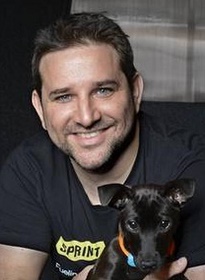Why so many entrepreneurs decide to pursue their dreams in Kansas City.
A lot of new business owners “bloom where they’re planted.” There’s no extensive site search. They don’t comb the map for that one perfect location. They just start their companies where they already happen to be living.
But if you own a business here in Kansas City, or you plan to start one, then we’ve got some good news: Our community offers real competitive advantages to entrepreneurs who choose to make their home here.
According to “Innovation That Matters,” a report from the U.S. Chamber of Commerce, Free Enterprise and 1776, Kansas City corporations are very supportive of startups—on this metric, we’re ranked No. 3 among the nation’s biggest cities. The region’s entrepreneurial ecosystem is well connected, rated ninth nationally, meaning it’s easier for young companies to get help.
Our pool of tech talent—a critical ingredient for innovative startups—is also strong, the report found.
Not all these benefits are immediately obvious. In fact, for longtime residents, it might be easy to overlook Kansas City’s innate strengths.
Ask entrepreneurs who are in the trenches, and you’ll hear how being based in Kansas City has led to bigger things.
Case in point: Biometric security firm EyeVerify was recently acquired by Ant Financial, an affiliate of China’s Alibaba Group. It’s a huge success story for a local startup.
But founder Toby Rush shares the credit with several Kansas City organizations, such as Startup Village, where EyeVerify was based in its early days, and the University of Missouri-Kansas City, where Dr. Reza Derakhshani and his team developed the underlying technology for EyeVerify.
“I believe that it takes a village to succeed,” Rush said. “The Kansas City community, along with the investing community in Omaha, has comprised an excellent village to support me and the EyeVerify team as we’ve developed our technology from concept to market-leading mobile biometric.”
‘Our Doors Are Open Here’
Kansas City’s No. 1 benefit for many entrepreneurs?
“I hear this from people everywhere, and you’re going to think it’s crazy, but our doors are open here,” said Maria Meyers, the director of the University of Missouri- Kansas City Innovation Center and the founder of KCSourceLink.
That is, it’s easier for new entrepreneurs to ask questions and get help in Kansas City than it might be if they were based in a larger community.
Some of that assistance comes through formal programs, like the Sprint Accelerator, Digital Sandbox KC or ScaleUP! Kansas City.
 Bek Abdullayev, the founder of Super Dispatch, has gotten the greatest support from his one-on-one connections with other entrepreneurs. Super Dispatch is a software solution for car haulers. It streamlines operations and billing while eliminating paperwork.
Bek Abdullayev, the founder of Super Dispatch, has gotten the greatest support from his one-on-one connections with other entrepreneurs. Super Dispatch is a software solution for car haulers. It streamlines operations and billing while eliminating paperwork.
A few years ago, Abdullayev took the basic idea for Super Dispatch to a Lean Startup Machine event at the Kauffman Foundation. Not only did Abdullayev get proof that he had a strong concept—he made about $3,000 worth of sales by the end of the weekend—he also connected with startup founders who were a couple years ahead of him.
These people gave Abdullayev pointers about what he should do next.
“The most valuable introductions early on were other founders,” he said. “Those are the people that truly understand what it takes.”
Today, Super Dispatch has a team of 12 people, and they’re working on exciting projects related to artificial intelligence and the Internet of Things. The startup has a string of achievements it can point to, including validation from the Sprint Accelerator and LaunchKC.
Abdullayev still makes a point of answering questions from people who are starting out. They’re in the same place where he was a few years ago.
“Without the community,” Abdullayev said, “I would not be where I am today.”
A Phenomenal Ecosystem
For some entrepreneurs, moving to Kansas City is a way to connect with a larger market.
 Davide Rossi is the founder of FitBark, which makes a wearable activity monitor for dogs—a kind of Fitbit for man’s best friend. You can buy FitBark from major retailers like Amazon and Best Buy.
Davide Rossi is the founder of FitBark, which makes a wearable activity monitor for dogs—a kind of Fitbit for man’s best friend. You can buy FitBark from major retailers like Amazon and Best Buy.
FitBark has already achieved a global presence: 30 leading research institutions, including the Mayo Clinic, and pet owners in more than 110 countries use the platform.
FitBark, previously located in New York, was one of the first companies picked for the Sprint Accelerator powered by Techstars. And Rossi has gone on to join Pipeline, a Kansas City-based fellowship for high-growth entrepreneurs.
But Kansas City originally caught Rossi’s attention because of another reason: the region’s massive concentration of animal health companies.
More than 300 such businesses have a presence in the KC Animal Health Corridor, which stretches from Manhattan, Kansas, to Columbia, Missouri. The corridor’s member companies represent more than 56 percent of that sector’s worldwide sales.
“It’s been one of the primary reasons why we decided to move the company here,” Rossi said.
While FitBark started as a consumer device, it also collects a very valuable type of data: 24-7, minute-by-minute records of pet activity and behavior around the planet.
And so, Rossi and his team have pursued partnerships with insurance companies, the makers of pet pharmaceuticals and pet-food companies—all of which need the insights that FitBark can provide.
“The community overall is just very welcoming and great cheerleaders,” Rossi said. “For a company in its infancy, it is so helpful, so valuable, to get that support early on.”
The Right Underlying Ingredients
 When it comes to cost control and employee talent, Kansas City delivers a solid value for emerging companies. Just ask Nick Bowden, the CEO of mySidewalk.
When it comes to cost control and employee talent, Kansas City delivers a solid value for emerging companies. Just ask Nick Bowden, the CEO of mySidewalk.
His startup’s platform helps city governments, federal agencies, school districts and other organizations to share their data, so they can make better decisions and build public support for new projects.
The company has fans in high places. It was recently picked for the White House’s Opportunity Project. As part of the public- data project, mySidewalk will help the U.S. Department of Transportation and the Office of the Surgeon General to make their data more easily accessible.
The startup—originally known as MindMixer—was founded in 2011 and moved to Kansas City in 2014.
“Kansas City had a lot of the kind of underlying ingredients to build a good tech company to scale,” Bowden said.
For starters, the cost of living is lower, which reduces a young company’s burn rate. Payroll costs less, so the money stretches further.
And secondly, the metro area’s technology talent is stronger than some people might realize. After all, Bowden notes, Kansas City’s largest employers—Sprint, Garmin and Cerner—are technology businesses at heart. They’ve nurtured a tech talent pool that’s deeper than cities whose major employers are strictly financial, construction or transportation companies.
It also helped that state and local officials, along with the Economic Development Corporation of Kansas City, made a concerted effort to court mySidewalk. The startup was approved for $1.65 million in state tax credits.
Those officials, Bowden said, “really made us feel like it was important that we were here.”
That sense of common purpose is why so many companies not only choose to start in Kansas City, but stay here, too.
EyeVerify, for example, has announced plans to stay in Kansas City post-acquisition, Rush said. Ant Financial is committed to nurturing the region’s capacity for technology development.
“I could launch a company anywhere, but the Kansas City community is full of talented people that genuinely want to support each other and see everyone succeed,” Rush said. “The people here believe that a rising tide raises all boats.”


